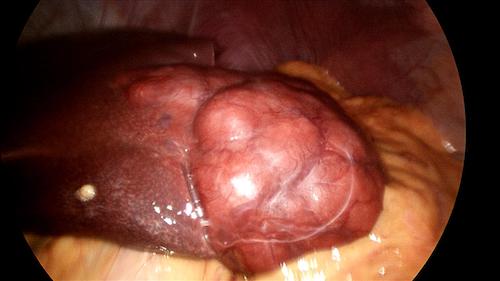What is an hepatic adenoma or focal nodular hyperplasia?
These uncommon liver lesions can cause confusion and concern, but can usually be diagnosed with specialist scans and are often treated with surveillance only, rarely requiring surgery.

Title
Hepatic Adenoma

Title
Focal Nodular Hyperplasia (FNH)
Hepatic Adenoma & FNH Symptoms
- Jaundice (yellow discolouration of the skin and eyes)
- Pain in that specific area of the abdomen
- Nausea
- A full feeling (typically occurring when a tumour has grown large enough to put pressure on other organs)
If the hepatic adenoma ruptures, this is very serious and can become life threatening (in rare cases). A ruptured hepatic adenoma can cause:
- Sudden sharp abdominal pain
- Internal bleeding
- Low blood pressure
If you are experiencing any of these symptoms and are concerned, you should make an appointment with your doctor.
The most common risk factor associated with hepatic adenoma is the use of oestrogen-based oral contraceptive pills, with the risk increasing with prolonged use and higher doses. Some less common risk factors include:
- Using steroids
- Type 1 diabetes
- Being overweight or obese
- Using barbiturates
- Excess iron in your blood
Hepatic Adenoma & FNH Diagnosis
- Blood tests
- Ultrasound
- CT Scan
- MRI
- Diagnostic laparoscopy
- Biopsy
Hepatic Adenoma & FNH Treatment
As these tumours are benign and generally rarely associated with complications, if they are small your doctor might suggest monitoring the tumour over time first before recommending treatment options.
If A/Prof Pilgrim can be certain the lesion really is an FNH (and not an hepatic adenoma), then these very rarely need any form of treatment or surveillance as they are not cancerous and do not become cancerous.
